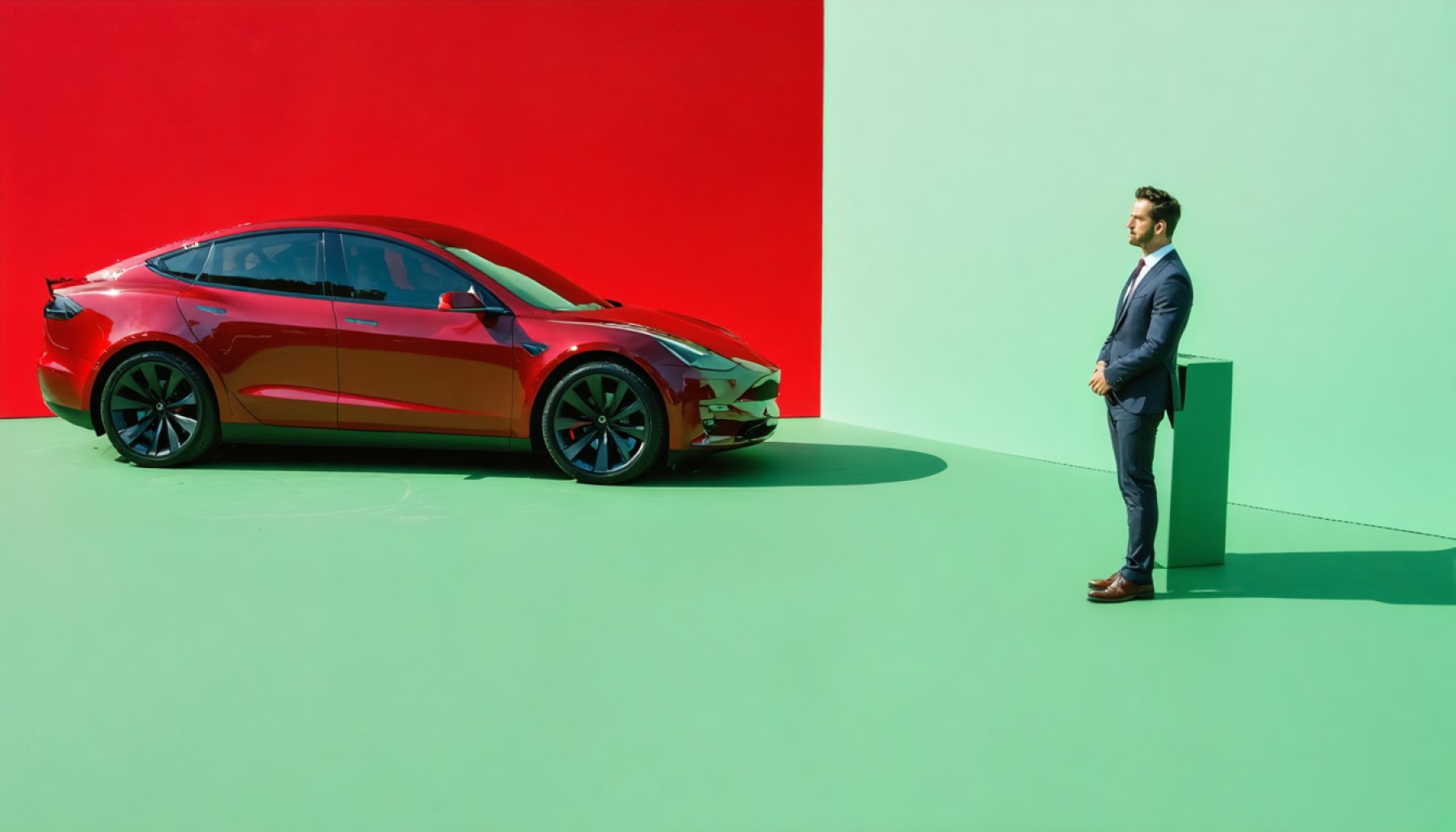- New York City witnesses public discontent against Tesla, symbolized by defaced cars and protests.
- Elon Musk’s controversial persona fuels demonstrations questioning the influence of tech leaders.
- Prominent artist Fred Brathwaite’s sentiments highlight the symbolic association of Teslas with political division.
- National trends show increasing Tesla trade-ins and declining online interest, indicating shifting consumer sentiment.
- The unfolding narrative underscores the tension between personal values and consumer choices.
- Tesla, once a symbol of progress, now faces scrutiny amid societal reevaluations of corporate leadership and personal values.
The bustling streets of New York City, once a tapestry of urban dreams and environmental aspiration, now serve as the backdrop for an unexpected rebellion. Tesla, the electric car giant synonymous with revolutionizing transport, finds itself at the heart of public discontent, embroiled in a narrative as layered as the city itself.
Symbols of Defiance
In a corner of the Lower East Side, a Tesla Cybertruck stands defaced, a red swastika glaring under the city lights—a stark symbol of protest against its controversial captain, Elon Musk. This act, while extreme, echoes the sentiments bubbling beneath the surface: a visceral clash between eco-consciousness and political expression.
Not too far away, Tesla’s sleek showroom in the Meatpacking District transforms into a stage for civil disobedience. Six protestors, firm in their resolve, plant themselves on the floor, their chants ringing clear: “Elon Musk is unelected, democracy must be protected.” Their arrest punctuates a growing narrative that questions the power wielded by technology magnates in modern society.
Art and Sentiment
Among those disillusioned is Fred Brathwaite, known to many as Fab 5 Freddy, a visual artist and hip-hop influencer of profound legacy. Since acquiring his Model 3 in 2019, he valued it not just for its engineering prowess but for its harmonious sound system—a key to the rhythms that underscore his craft. Yet, Brathwaite’s growing disquiet stems not from the vehicle’s mechanics but from a more symbolic association: the perception of a Tesla as the new emblem of political division.
For him, Musk’s controversial public gestures resonated as unsettling, even drawing parallels to historical totalitarian symbols. A term has started whispering through the alleys—“Swasticar”—invoking a parallel history fraught with cautionary tales. Now, every drive feels burdened by layers of unintended meaning.
Numbers Reflecting Sentiment
This sentiment is not isolated. Across the nation, Tesla trade-ins are climbing, as documented by automotive analysis firms. The digital omission is palpable too—interest in Tesla searches has waned to its lowest since last year, signaling a broader shift in consumer mood.
The takeaway articulates the growing tension between personal values and consumer choices. As the lines between product and persona blur, the integrity of corporate leadership plays a crucial role in shaping public trust.
In the heart of the metropolis where trends are born and dismantled, Teslas—once the darling of progressive drivers—now cruise delicately along the fault line of a societal re-evaluation. The narrative unfolding before us raises a pivotal question: when personal values collide with public figures, how does one navigate the road ahead?
The answer, it seems, may lie not just in the engine’s efficiency, but in the values steering the wheel.
Why Are New Yorkers Turning Against Tesla? Exploring the Tensions Behind the Protests
Understanding the Backlash Against Tesla in New York City
The recent actions against Tesla in New York City serve as a significant indicator of the turmoil brewing beneath the surface. A striking image of a graffitied Tesla Cybertruck and protests at a Tesla showroom highlight dissatisfaction with the company’s influence and its CEO, Elon Musk. As New Yorkers take a stand, it’s clear that personal values and brand perception are increasingly intertwined.
Key Concerns: Political Expression vs. Eco-Consciousness
– Political Symbolism: The use of extreme symbols on Tesla vehicles signals a profound expression of dissent among consumers and underscores a perception of Teslas as emblems of political division. This tension poses a question of how brands can balance technological innovation with social responsibility.
– Public Perception of Leadership: Elon Musk’s outspoken public persona contributes to this complex narrative. Musk’s tweets and business ventures often stir controversy, and some view his power as an unchecked influence devoid of democratic accountability.
– Shift in Consumer Sentiment: Automotive analysts note an uptick in Tesla trade-ins, which seem to reflect a shift in consumer sentiment. This change coincides with reduced online interest in Tesla, suggesting a waning enthusiasm for the brand.
Implications for Tesla and Other Brands
Market Predictions & Trends
– Consumer Choices: Brands should increasingly account for social and political dynamics when crafting their public images. Tesla’s experiences might prompt other companies to anticipate potential backlash and diversify their public communication strategies.
– Tech Industry Scrutiny: The scrutiny on Tesla could herald greater oversight and regulation of tech entrepreneurs who, like Musk, wield substantial influence in both business and societal realms.
Actionable Recommendations for Consumers
– Align Values with Purchases: Consumers should research and assess a company’s branding and leadership ethos before purchasing its products. Ensuring alignment of personal values with the products they endorse could lead to more satisfying long-term consumer experiences.
– Community Involvement: For those concerned about corporate influence, getting involved in local or national advocacy groups can amplify one’s voice and influence corporate behaviors and policies.
Final Thoughts: Navigating a Complex Landscape
The ongoing Tesla protests in New York are more than isolated events; they represent a significant cultural moment. As consumers, brands, and leaders adapt to new expectations around accountability and representation, everyone involved in these discourses must work harder to bridge the divide between personal values and marketplace realities.
For more insights into evolving consumer paradigms and corporate responsibilities, visit the technology and society section at New York Times and the latest consumer trends at Forbes.
